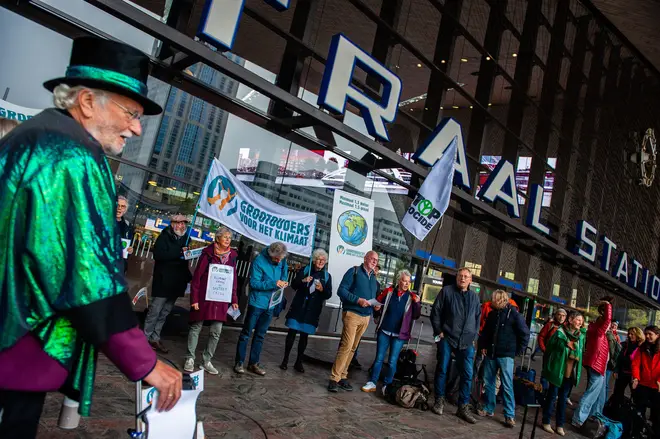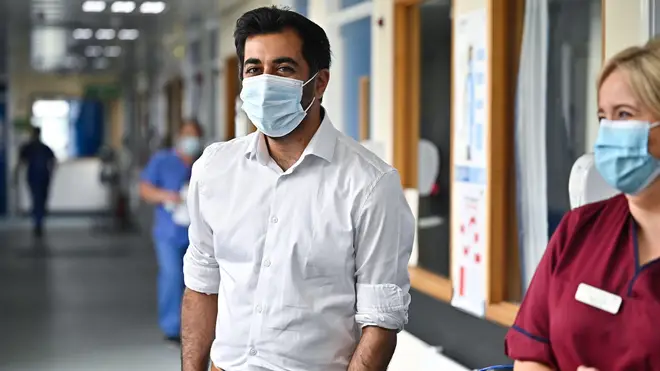
Paul Brand 10am - 12pm
25 October 2021, 20:20 | Updated: 25 October 2021, 20:25

Scotland's health secretary Humza Yousaf has admitted there is "absolutely a risk" of the UN climate crisis summit in Glasgow becoming a Covid super-spreader event.
Daily negative lateral flow tests will be required by delegates and other attendees, but there are still growing concerns among public health professionals the global event could result in a major spike in Scotland's Covid cases.
There was a rise in Covid-19 cases in Cornwall in June, though the UK Government denied the G7 meeting was to blame.
However Professor Linda Bauld, chair of public health at Edinburgh University, said mass events like the climate conference are still “risky” despite declining rates of Covid-19 and Scottish Government adviser, Professor Devi Sridhar, said there was a potential increase in cases associated with so many people being in a relatively small area.

Mr Yousaf has now admitted there is a risk, but stressed the Scottish and UK governments have mitigations in place to prevent transmission.
"We have been working with the UK government and the United Nations (UN) to make COP as safe as we possibly can," he said.
"Mitigations like daily testing in the Blue Zone, very strict isolation protocols in place, face coverings being worn and so on. We will do everything we possibly can.
He added: "There is no public health expert in the world who would say there is no risk in the midst of a global pandemic to have tens of thousands of people descending onto largely one city so there is absolutely a risk of Covid cases rising thereafter but we will do everything we can to mitigate that.
"Of course we would expect there to be positive cases linked to CoP but we are also very, very assured by the protocols we have got in place to be able to isolate those cases as best as we possibly can."
Between 25,000 and 30,000 people are expected to attend the summit over the 12 days, but it is exempt from the Scottish Government's Covid vaccine scheme.
The UK Government has said all attendees are expected to comply with the Covid testing regime, including pre-departure tests from their home countries, whether they are vaccinated or not.
Evidence of a negative Lateral Flow Test will be required every day, which delegates and staff need to self-administer at their hotels before travelling to the venue. Test kits are being provided through delivery to major hotels.
Professor Bauld said she was "worried about a Glaswegian spike" but also a wider rise in cases as Scotland's central belt "is interconnected".
She added: "We’re seeing declines here but we may not be able to hang on to those gains. We’re trying to open up and everything’s trying to operate more normally.
“Everybody’s delighted to be able to go to the cinema or a concert or have more people in their homes. This is hard-won progress thanks to vaccines and other things. But having huge mass events at the moment, I think it is risky.”
On Twitter Professor Sridhar said: "I could be wrong (and hope I am) but yes. A mass event with major movement of people in and out with an infectious virus will cause an increase in cases.
"While in the case of Covid will put stress on limited health services. Which triggers need for further restrictions."